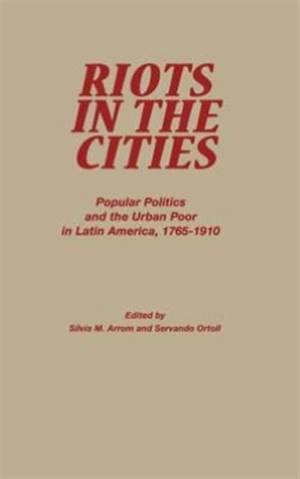
- Afhalen na 1 uur in een winkel met voorraad
- Gratis thuislevering in België vanaf € 30
- Ruim aanbod met 7 miljoen producten
- Afhalen na 1 uur in een winkel met voorraad
- Gratis thuislevering in België vanaf € 30
- Ruim aanbod met 7 miljoen producten
Riots in the Cities
Popular Politics and the Urban Poor in Latin America 1765-1910
Omschrijving
The seven essays in this reader analyze urban riots that broke out in major Latin American population centers between 1765 and 1910. Inspired by the works of Eric Hobsbawm and George Rud, the authors find that the participants in these riots were far from irrational. The crowds responded to specific social provocation and attacked property rather than people. When taken together these essays challenge the notion that prior to 1910 power was strictly in the hands of the elite. Lower-class city residents, too, held strong opinions and acted on their convictions. Most important, their voices were not unheeded by those who officially wielded power and implemented social policies.
Specificaties
Betrokkenen
- Uitgeverij:
Inhoud
- Aantal bladzijden:
- 248
- Taal:
- Engels
- Reeks:
Eigenschappen
- Productcode (EAN):
- 9780842025805
- Verschijningsdatum:
- 1/03/1996
- Uitvoering:
- Hardcover
- Formaat:
- Genaaid
- Afmetingen:
- 152 mm x 229 mm
- Gewicht:
- 517 g

Alleen bij Standaard Boekhandel
Beoordelingen
We publiceren alleen reviews die voldoen aan de voorwaarden voor reviews. Bekijk onze voorwaarden voor reviews.








